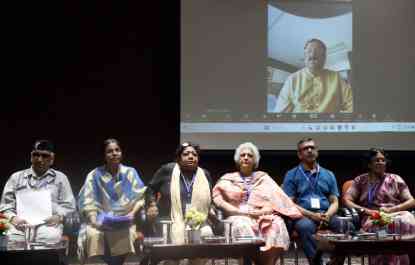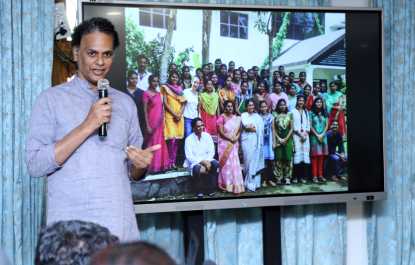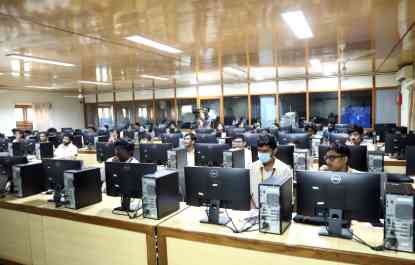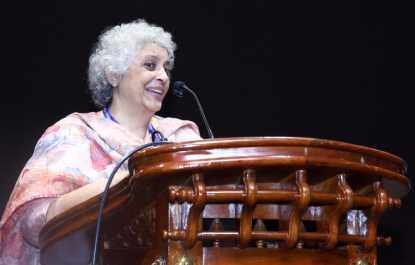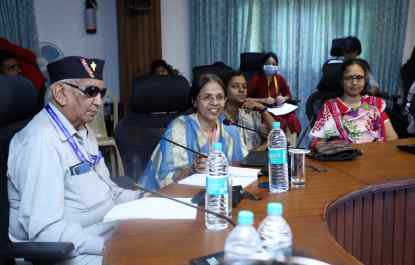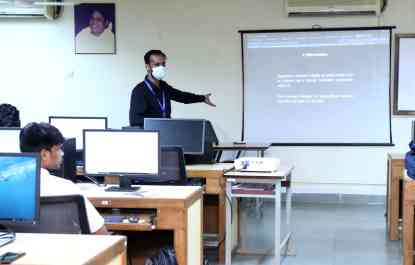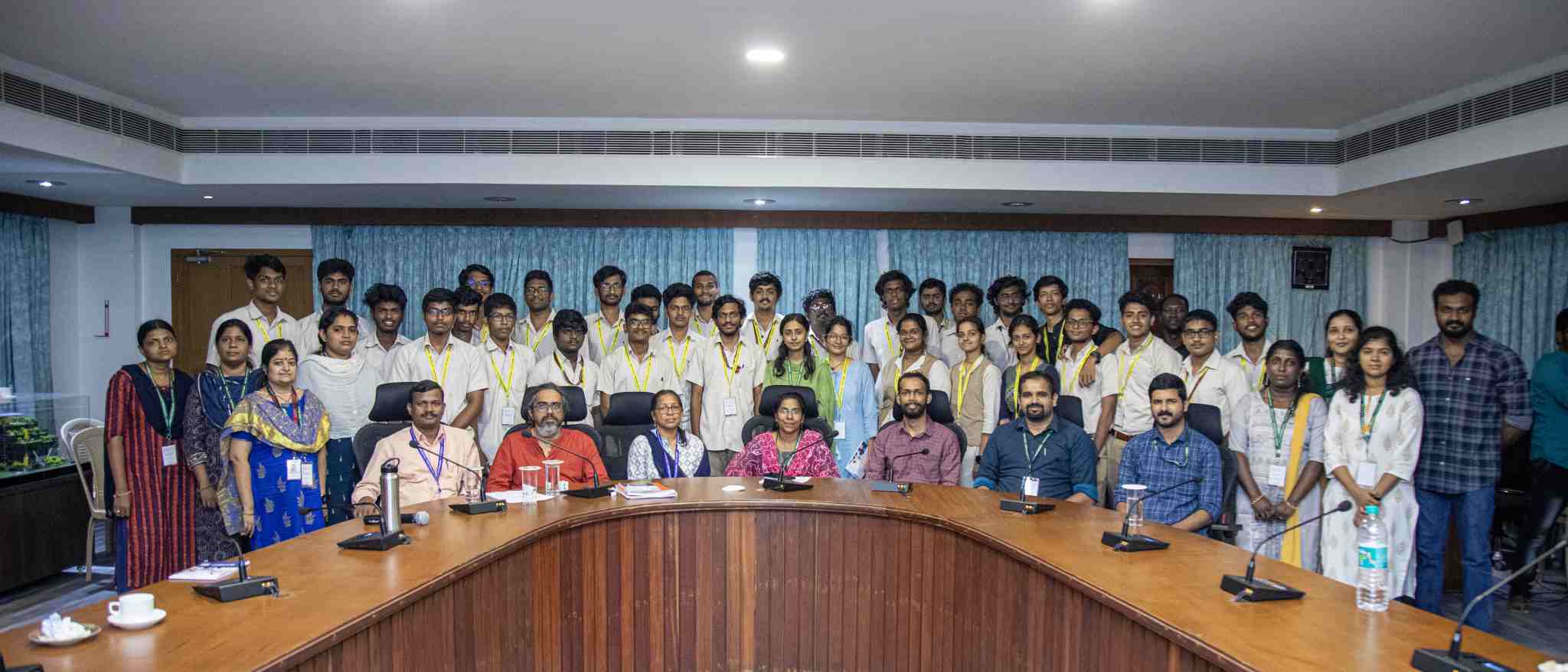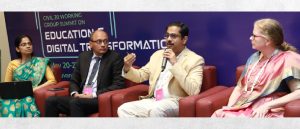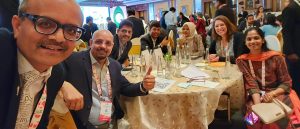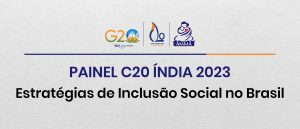INCORPORATING COMPUTATIONAL LINGUISTICS IN INCLUSIVE EDUCATION BRIDGES COMMUNICATION GAPS
The Civil 20 Education and Digital Transformation (EDT) Working Group jointly organised a two-day hybrid workshop on Computational Linguistics and Inclusive Education with Amrita School of Computing, Amritapuri, and Amrita CREATE on April 3-4, 2023. Over 110 participants from eight countries attended the event. The aim of the workshop, designed for faculty, technologists, research scholars, and students, was to leverage Natural Language Processing (NLP) to make learning more inclusive.
Dr. Prema Nedungadi, EDT India Coordinator, Director of Amrita CREATE, and Chairperson of the School of Computing, Amrita Vishwa Vidyapeetham, Amritapuri, outlined the key objectives of the workshop. The objectives include highlighting the potential of NLP-based solutions in supporting inclusive education for students with disabilities, providing an in-depth understanding of NLP techniques and tools that can be used to support inclusive education for students with disabilities, and covering NLP techniques and offering illustrations of how these techniques can be applied to support inclusive education.
The workshop was inaugurated by Prof. Shrinivasa Varakhedi, Vice Chancellor of Central Sanskrit University, New Delhi. Prof. Varakhedi emphasised the importance of computational linguistics and said that the workshop’s focus on the inclusive education agenda is a novel approach. Eminent speakers with expertise in computational linguistics and inclusive education enlightened the attendees about the various disabilities, assistive technologies that can aid students with various learning challenges, and the use of technology to address inclusive education for diverse learners.
The key highlight of the first day of the workshop was a panel discussion on the central theme of inclusive education, challenges, and opportunities. The panelists were Dr. Madhumita Puri, Executive Director of the Society for Child Development, Mrs. Kate Currawalla, Founder and President of Maharashtra Dyslexia Association, Prof. Shree Ram Mittal, Retired Professor, University of Delhi, Dr. Jayaraj Poroor, Dean, Amrita School of AI, Dr. Jayanthi Narayan, Former Deputy Director, National Institute for the Mentally Handicapped (NIMH), and Dr. A.M. Marykutty, renowned Clinical Linguist, served as a Professor of Linguistics at the Central University of Kerala and Kerala University. A hands-on session was conducted by Mr. Navaneeth K, a professional programmer and coder, who leads the R&D team at CollabLL. He shared his insights, ideas, and research findings. Mr. Kiran, an MTech student at the School of Computing, Amritapuri, was the first contributor to the Malayalam Automatic Speech Recognition (ASR) Project and his efforts were appreciated and well-received by the experts.
The central theme highlighted how inclusive education can be achieved by leveraging technology through equity. To achieve inclusion, the Samagra Shiksha and NEP 2020 are in place. However, implementation remains a challenge. For instance, the lack of knowledge of structured language hinders effective communication for deaf students or those with speech impairments. Braille equipment and assistive technologies must be focused on. Meanwhile, it is crucial to understand the needs of persons with disabilities to develop appropriate solutions. Therefore, incorporating computational linguistics in inclusive education can help bridge communication gaps and foster an inclusive learning environment accommodating students with diverse learning needs.
On the second day, Civil 20 Principal Coordinator (Sherpa), Ambassador Sri. Vijay K. Nambiar graced the occasion. Professor Venu Govindaraju, Vice President for Research and Economic Development at University at Buffalo, inaugurated the Valedictory session.The key speakers were Dr. Thennarasu Sakkan, Associate Professor, Central University of Kerala, Dr. Achuthsankar S. Nair, Professor and HOD, Computational Biology & Bioinformatics, the University of Kerala, Dr. Sunil T.T., Professor Department of Electronics College of Engineering, Attingal, and Mrs. Kate Currawalla. They highlighted existing technologies and explored possibilities to develop solutions. Students were encouraged to delve deeper into NLP, develop solutions to contribute to economic growth and support inclusive education.
